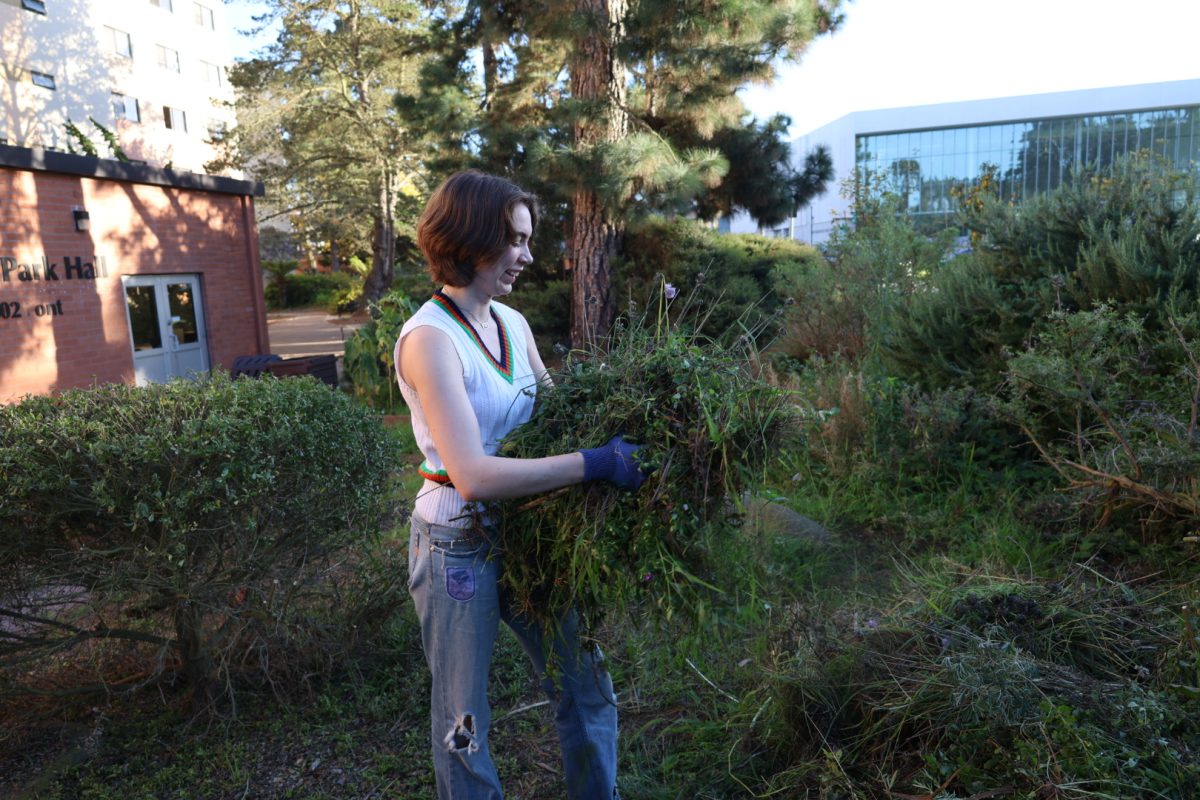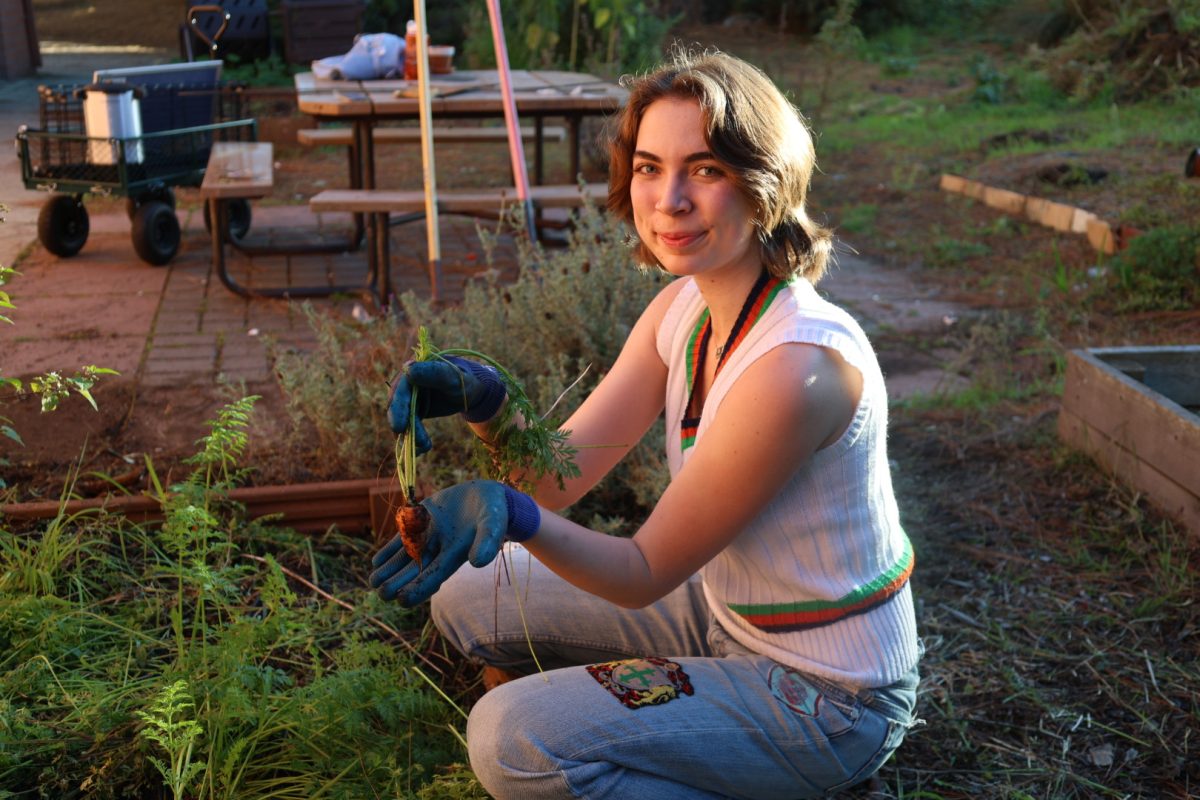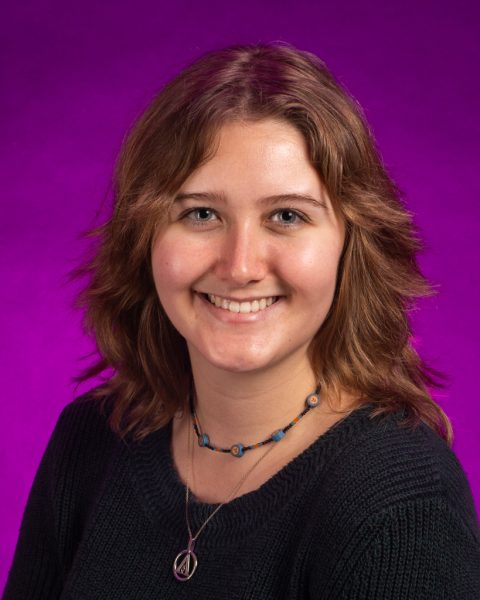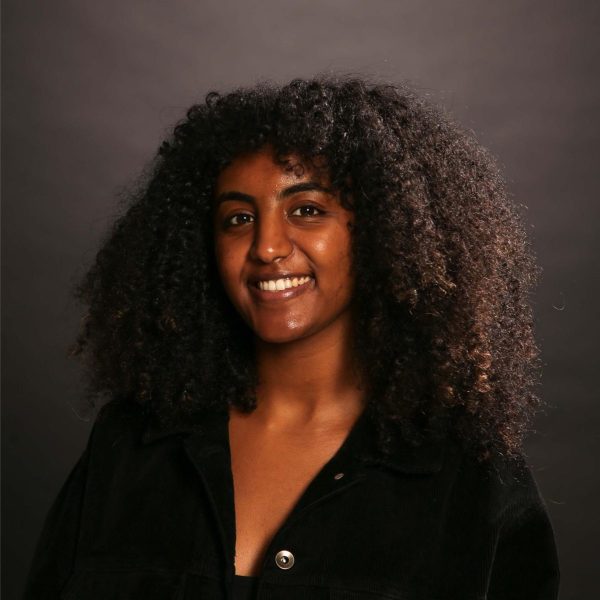Sustainability.
People know the word, but what does it actually look like? Going green and staying green can be a challenge, especially as a college student. Figuring out how to get from place to place, getting rid of old electronics and how to correctly sort trash can be challenging for some.
Sustainability is on the mind of everyone who is involved in climate change and how they can improve on their conscious efforts to be more sustainable. Now, student organizations are getting involved with helping out the planet and keeping San Francisco State University’s campus green.
There are a few different ways that students can get involved with sustainability on campus. The Office of Sustainability is a great resource for those looking to get more information on how to be greener for the earth.
Climate Action Coordinator, Taylor Mogavero and director of the Office of Sustainability, Caitlin Steele are involved in numerous ways to reduce SFSU waste and become more sustainable. One of the things the office does is host a booth where they have waste sorting games and educate students on compost, recycle and landfill at Eco-Fest. Around Earth Week hosted by Climate Headquarters to help students, staff and faculty alike learn how to properly sort between compost, trash and recycling. Eco-Fest is held by the Environmental Resource Center in September.
“Since this is a commuter school, a lot of people live outside of San Francisco city and county. So their county might sort recycling, compost, waste differently than we do. So definitely trying to get the message out on how specifically it’s done here,” Mogavero said. “If students have questions and how it’s done in their county, we try to point them at the right resources.”
Water conservation is a great way to practice sustainability. In a college dorm setting, it can be difficult to figure out how to conserve water. Since California endured a wet winter last year, the state is no longer in a drought. California had been in a drought for several years prior to last year’s winter.
“We would like to start to work with the students on reducing water usage in the residence halls. A lot of that can be just education about shorter showers,” Steele said. “For our residents who have full kitchens, it’s kind of more about conserving water while cooking and cleaning. Also with washing machines –– using colder temperature.”
Climate Headquarters is a place that students can go on campus to learn about the environment, climate justice and climate change. According to Alcides Fuentes, the Climate HQ’s program and communications specialist, their goal in running the headquarters is to create a space for all to learn about climate change without being involved in STEM.
“We want to be like a hub and a community for everybody who’s interested in these types of topics,” Fuentes said.
The headquarters are there to help empower those who are interested in climate change. It also served to help students get started in climate activism in their fields.
“The main thing that we have is the certificate, which is a set of four to five classes that students can take. Where they learn about climate change and they learn how people get involved, how to get involved politically as a community organizer,” Fuentes said. “Maybe other students want to do more technical stuff like, there’s also still science to climate. We connect students who want to work with sustainability or maybe, like in design.”

One of the things that Fuentes sees the Climate HQ achieving is climate justice and how different areas around the world are affected by different events happening. More specifically, how people of color are affected by climate change and how that affects social justice movements.
“People throughout the world experience drought at a way larger scale than we do here in California and these are things that we [science classes at state] don’t really touch on,” Fuentes said. “Instead of simply just having a reusable water bottle, you know that these things are happening and you know what your position is to improve it.”
As well as advocating for climate justice, the Climate HQ is there to help relieve any climate anxiety and helplessness that students may be feeling when learning about this topic. In the headquarters, Fuentes and others break that down to rebuild it again.
“That way of thinking that there’s nothing that you can do about climate change, is what the fossil fuel industry wants you to think. They want you to be complacent and they want you to give up,” Fuentes said. “At Climate HQ, there’s so many things happening in the climate justice world in the field. It’s almost like there’s a whole underside to the climate world,”
Jason Porth is the vice president of university enterprises and the co-chair of the campus sustainability committee. Porth and his office worked very closely with Associated Students in 2016 to bring all SFSU students the Gator Pass. Now, Porth and his team are partnering back up with AS to modify the pass and make it cheaper.
“It would also include all Bay Area Transportation. Rather than just including BART, Muni and SamTrans, it would also include AC Transit, Caltrain and the entire cost of BART, not just the 50% discount, so it would give students a lot more bang for their buck,” Porth said. “By encouraging transportation on public transit, it gets students out of their cars and we think provides a much better value, and really encourages transportation demand management.”
Within the last five years or so, the CSU asked all its campuses to move towards banning single-use plastic water bottles. Thanks to Porth, the office of sustainability and more, SFSU is able to do so ahead of the targeted date.
“We’re really encouraging reusable water bottles. We added 100 water bottle filling stations to campus over the last year, which I’m really excited about and encouraging people to bring their own water bottles,” Porth said. “Not having them available for sale on campus and having instead things like these path water bottles, which an alum came up with, which are aluminum and are recyclable and reusable, and then also move to cardboard water bottles for people that want to go in that direction.”
Andrew Lok is the retail and commercial services manager and on the sustainability committee. Lok has seen the difference in how waste is handled from different students who come to SFSU for their education. The ultimate goal is for SFSU to eventually become a zero waste campus.
“I think even coming up north, there are some differences in how we handle waste diversion versus Southern California,” Lok said. “It’s just a matter of working through the different groups that we have on campus. Even ours, to work with our vendors to see how we can be supportive of different initiatives.”
While Lok is optimistic for an eventual zero waste SFSU, he thinks it will be challenging. Due to the recent budget cuts and loss of funding it could take a long time and push people to look for alternatives.
“I think it’s going to take time, and as noted, we want to be supportive and we want to get there,” Lok said. “Just some of it is presented via financial challenges to make that happen sooner rather than later. I think we can get there though.”









